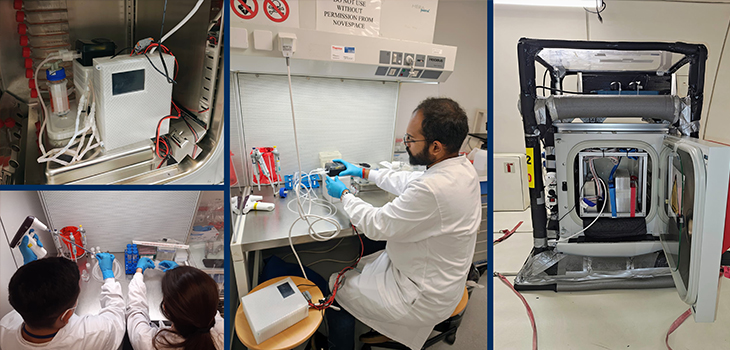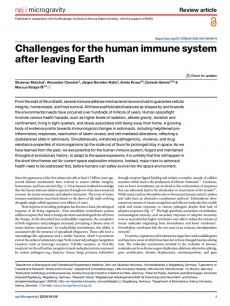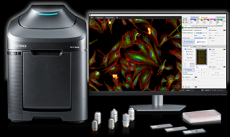Environmental Cell Biology Group

Environmental cell biology? Environmental cell biology is a multidisciplinary field that combines medicine, biology, chemistry, physics and ecology to better understand the interactions between cells and their environment. The most important aspects here are: cellular reactions to environmental factors, cell communication and the interaction between environmental influences and cellular health/disease.
Environmental...
In addition to genetic information (genome, epigenome), the environment is the second important factor on which the function and developmental fate of a cell depends. In the Environmental Cell Biology group, we investigate cellular effects that are triggered in response to changing environmental conditions. In multicellular organisms, such as humans, we distinguish between external influencing factors outside (macro-environment; chemical: pollutants; physical: climatic changes, radiation; biological: pathogens), and internal influencing factors within the human body (micro-environment). While the influence of the macro-environment is usually conceivable, the cell micro-environment can also change, for example triggered by diseases or other physiological reactions of the body (stress, endocrine and (neuro)immunological reactions, microbiome).
...Cell Biology
Every biological process in the human body, no matter how complex, begins with the individual cell, which is why basic research in cell biology is the key to understanding pathogenesis in vivo, but also to developing suitable disease models in vitro. In our research group, we use technology from the space sciences not only to investigate the effects of weightlessness (microgravity) on human cells, but also to study mechanodynamic disease models (e.g. to investigate cancer metastasis), to optimize in vitro cell cultures and to understand and harness developmental biological processes in the field of self-organizing tissue engineering. Understanding how and why cells react to changing environmental factors could also open the door to new and improved treatments for diseases.
What we are working on:
- Novel therapeutic approaches against cancer (microgravity, natural substances, photodynamic therapy, hyperthermia, ...)
- Strategies against multi-resistant super germs
- Cell technology (in vitro models, replacement for animal experiments)
What we want to understand:
- How cells perceive their environment and how they react to changes in environmental factors
- Cellular and molecular processes in diseases (e.g. metastasis)
- Cell biology under extreme conditions (space medicine/biology)




























